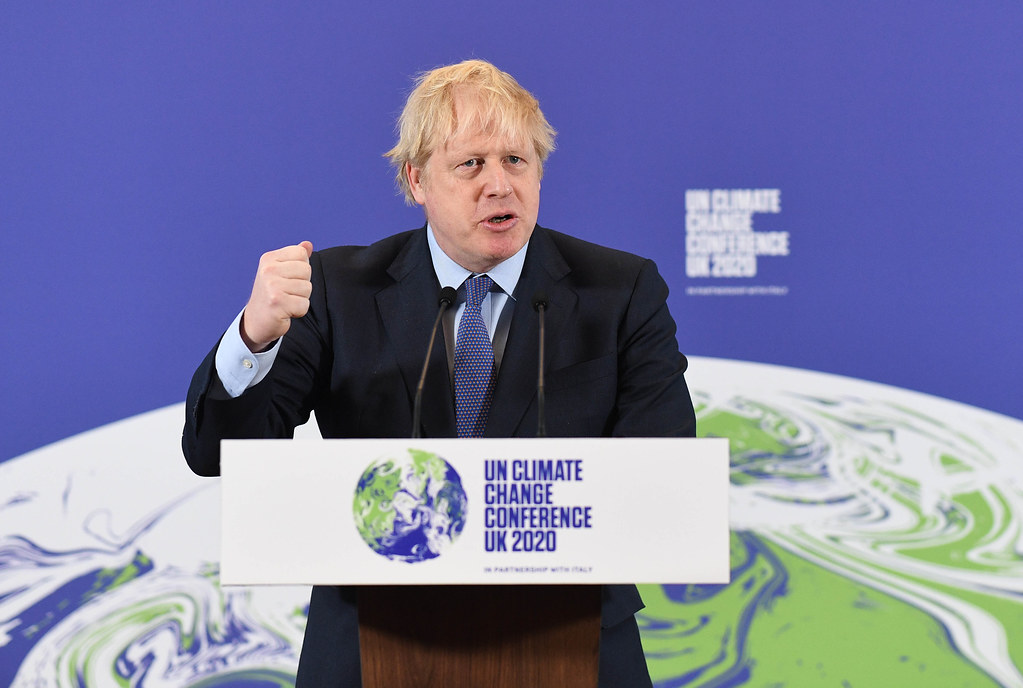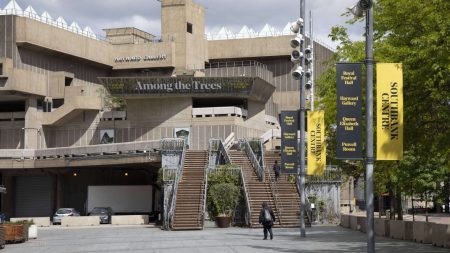In a short video released on the official COP26 Instagram page, David Attenborough made his message ahead of the UN climate conference clear.
“There could not be a more important moment that we should have international climate agreements,” he said . Installing Attenborough – a leading voice in tackling the climate crisis – as the “people’s advocate” ahead of COP26 is somewhat symbolic in its nod to the UK’s assumption of leadership heading into the conference. But if the conference is to have the influence many countries hope it will, symbolism won’t be enough for COP26.
After being delayed from 2020 due to the pandemic, COP26 arrives at a crucial time for action on climate change. Ahead of the conference, signatories of the 2015 Paris Agreement are expected to make nationally determined contributions (NDCs) which formalise their targets to reduce emissions. In March, the UK government unveiled its own NDC, pledging that it would cut greenhouse gas emissions by 78 percent by 2035 compared with 1990 levels.
But with the conference now less than six months away, all eyes are on the UK in its role as host of the negotiations. COP26 President and former Business Secretary Alok Sharma has been clear in his aim to keep ‘1.5 alive’. This ambitious target would see global warming limited to 1.5 degrees celsius against pre-industrial levels and is perhaps within reach with the right international cooperation from the world’s governments.
Alexander Stafford, the MP for Rother Valley and Vice-Chair of the APPG on Environment points out that COP26 is a huge opportunity for the UK to “be at the vanguard of the world’s green revolution.” As the host of COP26, the UK is in a position to be “leading by example on climate policy, pressing other nations to set ambitious targets and promote UK plc’s green goods and expertise for export”, he said.
In taking on such an urgent opportunity – and one distinctly international in its focus – the stage has been set for the UK government to ensure it is clear in its direction on climate change heading into the conference. This is a call which has been echoed across the board.
Tom Evans, a researcher at think tank E3G added that heading into COP26 the UK is “going to have to have its own domestic house in order”. By taking a firm direction on emissions targets at home, the UK will be able to successfully“exert diplomacy internationally to persuade other countries to come up with higher ambition climate targets,” he explained.
In a practical sense, this takes shape in putting in place tangible strategies to deal with urgent issues such as heat decarbonisation and energy efficiency. But it also requires ensuring that all parts of government work towards policies which help, not hinder, the UK’s path to net zero.
“The key test will really be how the government chooses to spend its money in the upcoming years,” said Evans. “There’s a spending review later this Autumn before COP, and that will be the key moment where the government is actually going to put its money where its mouth is.”
Taking clear leadership on tackling climate change must therefore be a priority for the government. For Stafford, Downing Street should aim to be “securing international cooperation, particularly among the world’s big economies and big polluters”. This should be done in tandem “working across government departments to achieve energy, climate, trade, and foreign policy objectives which demonstrate a truly Global Britain”, he said.
Evans agrees preparation for COP26 requires a whole new government approach, particularly when it comes to spending. “It’s about having an overarching test against all of your spending that is aligned to Net Zero” he said.“Then everything that the government does would be aligned with that clear goal of reaching the 2050 target, and going beyond that.”
Still, action should not be limited to preparation for COP. The conversations held at the conference will lay the foundations for further movement from Whitehall on tackling climate change.
For Stafford any action in the wake of the conference must place job creation at the centre . “I want to see the government fulfilling its ambitious Ten Point Plan and the Energy White Paper” he said, “which will ensure we meet our net zero target and will play a crucial role in our levelling up agenda.”
But as can be observed in their recent actions, the government has work to do in reconciling the twin goals of levelling up and the green agenda. The plans to open a coal mine in Whitehaven, Cumbria – while championed as a font of job creation – undermined the government’s pledges to cut emissions and the UK’s presidency of COP26. Rather than leading the way on environmental policy, it looked as though instead, the UK was taking a step back.
The debate around the mine saw job creation pitted against sustainable development – but the two are not mutually exclusive. Better options for green job creation do exist. This could come through further investment in generating clean energy or further work to tackle the growing and urgent problem of heat decarbonisation.
It’s clear the main topic on the COP26 agenda will be securing firm commitments from all members of the Paris accord on cutting emissions. But once the conference is over, there will still be work to do in government to ensure the momentum is kept going. While appetite for change on Whitehall has been crystallised in policies such as the Ten Point Plan, the run up to COP26 is the perfect time for the government to turn that talk into action.






